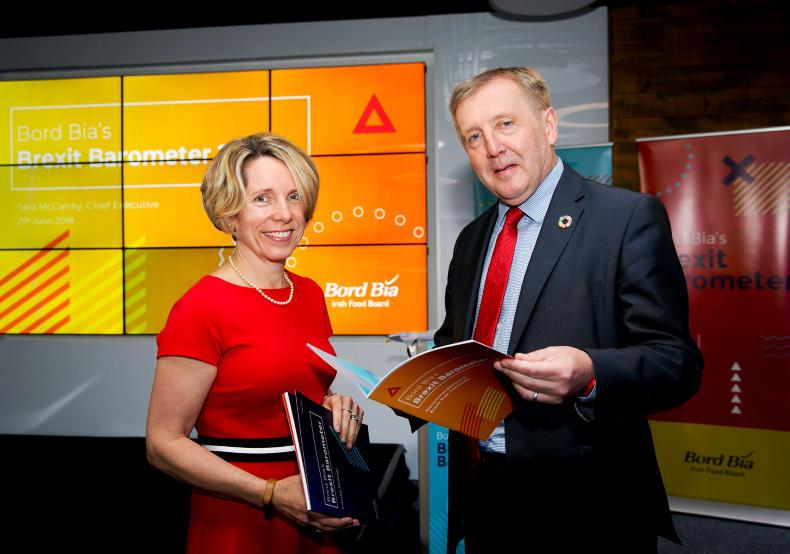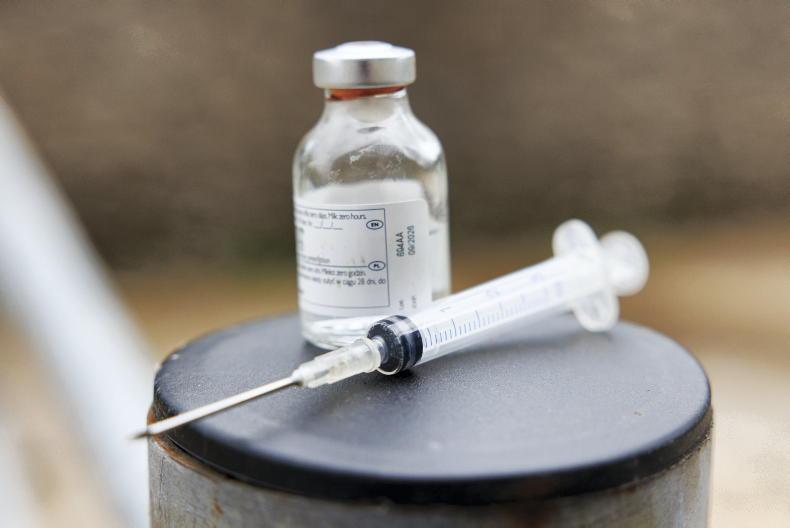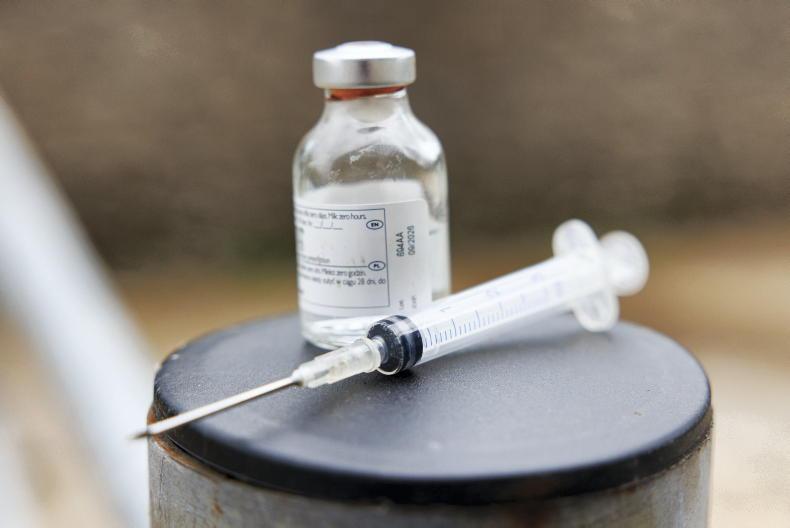Bord Bia’s Brexit Barometer survey of 117 agri food exporters found that a majority would experience severe difficulties if the sterling exchange rate rose above £0.90 = €1.00.
This limit was tested briefly on two occasions since the UK’s referendum on leaving the EU, but the rate is now around £0.88 = €1.00 and could soar if a hard Brexit was confirmed.
Listen to "Creed on Brexit, CAP and bullying allegations" on Spreaker.
Yet while nearly all food companies with a turnover greater than €100m have a hedging strategy in place to absorb a currency shock, virtually none of the smaller businesses under €1m have. This reflects a gap between large and small exporters across a range of issues queried by Bord Bia, from knowledge of customs procedures, to preparedness for disruptions in supply chains.
Bord Bia’s chief executive Tara McCarthy said the agency would target additional support and training towards these companies, but did not see the need for a radical change in its approach in the wake of an increasingly likely no-deal Brexit scenario.
Listen to "The food trade forecast from Bord Bia’s Brexit Barometer" on Spreaker.
“There has literally been no stone left unturned in this,” she told the Irish Farmers Journal, adding that recruitment for 30 new positions funded by the Department of Agriculture were at the second interview stage, with additional staff to be recruited by the end of August.
Minister for Agriculture Michael Creed acknowledged that there has been “practically no progress made” in Brexit negotiations since December, but welcomed the fact that “solidarity across the EU 27 is rock solid”. He urged smaller agri food businesses to accelerate preparations and said: “We have been preparing for all scenarios.”
Exporters taking part in the presentation of the Brexit Barometer reported progress in discussing the issue with their UK customers.
“In the last month to six weeks, there has been a massive ramp up, particularly from retailers,” said Ornua chief executive John Jordan. “They’re suddenly realising it is happening.”
Dawn Meats chief executive Niall Browne said exporters would continue to open alternative markets, but warned that obtaining approvals to enter new countries represents a large investment: “We’re going to need support for that and we’re looking for a relaxation of state aid rules.”
Read more
Listen: gap between large and small food exporters in Brexit readiness
'Brexit has the potential to create a new scale of milk crisis' – EDA
What every food exporter should do to prepare for Brexit customs
EU visit confirms lack of Brexit progress
Bord Bia’s Brexit Barometer survey of 117 agri food exporters found that a majority would experience severe difficulties if the sterling exchange rate rose above £0.90 = €1.00.
This limit was tested briefly on two occasions since the UK’s referendum on leaving the EU, but the rate is now around £0.88 = €1.00 and could soar if a hard Brexit was confirmed.
Listen to "Creed on Brexit, CAP and bullying allegations" on Spreaker.
Yet while nearly all food companies with a turnover greater than €100m have a hedging strategy in place to absorb a currency shock, virtually none of the smaller businesses under €1m have. This reflects a gap between large and small exporters across a range of issues queried by Bord Bia, from knowledge of customs procedures, to preparedness for disruptions in supply chains.
Bord Bia’s chief executive Tara McCarthy said the agency would target additional support and training towards these companies, but did not see the need for a radical change in its approach in the wake of an increasingly likely no-deal Brexit scenario.
Listen to "The food trade forecast from Bord Bia’s Brexit Barometer" on Spreaker.
“There has literally been no stone left unturned in this,” she told the Irish Farmers Journal, adding that recruitment for 30 new positions funded by the Department of Agriculture were at the second interview stage, with additional staff to be recruited by the end of August.
Minister for Agriculture Michael Creed acknowledged that there has been “practically no progress made” in Brexit negotiations since December, but welcomed the fact that “solidarity across the EU 27 is rock solid”. He urged smaller agri food businesses to accelerate preparations and said: “We have been preparing for all scenarios.”
Exporters taking part in the presentation of the Brexit Barometer reported progress in discussing the issue with their UK customers.
“In the last month to six weeks, there has been a massive ramp up, particularly from retailers,” said Ornua chief executive John Jordan. “They’re suddenly realising it is happening.”
Dawn Meats chief executive Niall Browne said exporters would continue to open alternative markets, but warned that obtaining approvals to enter new countries represents a large investment: “We’re going to need support for that and we’re looking for a relaxation of state aid rules.”
Read more
Listen: gap between large and small food exporters in Brexit readiness
'Brexit has the potential to create a new scale of milk crisis' – EDA
What every food exporter should do to prepare for Brexit customs
EU visit confirms lack of Brexit progress









SHARING OPTIONS